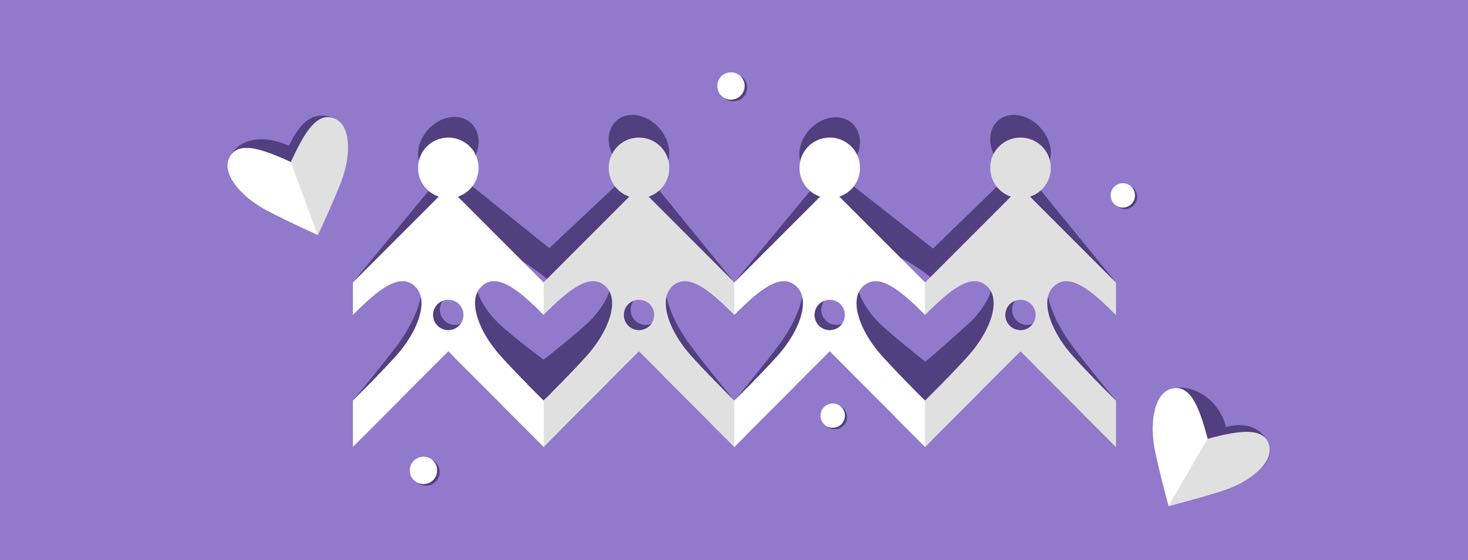Cancer is a Family Disease
There’s no doubt that cancer impacts everyone in the family. Kids are no exception. What really goes on in their minds when they hear someone they love has cancer? Every family dynamic is different, every individual experiences and displays emotions in a unique way.
I thought I’d share the responses of our children when their dad was diagnosed with stage 4 prostate cancer, looking at both our initial conversations and more recent discussions.
Shock at the news
Some background: we have three children, all in their forties. Their dad was diagnosed when they were in their late twenties to mid thirties. They had all flown the nest, finished their college years, and were starting their careers. They were blessing us with wonderful grandchildren.
We told the kids about Dan’s cancer individually, not as a group, so they would have a chance to ask questions, voice concerns, and share their emotions with just us. They were all shocked as my husband had exhibited no symptoms and appeared healthy. Reactions were similar: sadness, fear which they attempted to mask, questions about next steps and his mortality.
As parents, we feel incompetent because we can’t take the fear and sadness away. It’s heartbreaking when you share news like this with your kids, and they reach out for your hand or reach over to hold you, trying to comfort you. As parents, we’re supposed to be the comforters.
A lesson for everyone in our family
Our son, of course, was worried about his dad. They had that special father/son bond. Being another male, our son also expressed concern about his potential for a prostate cancer diagnosis. One of the few good things that came from my husband’s prostate cancer was our son’s awareness of his health and the need to be proactive. Although he’s only forty now, his annual checkup includes screening for prostate cancer.
Dan’s cancer has taught everyone in our family the importance of research, the power of knowledge, the wisdom of second opinions. Our oldest daughter is now using the lessons and power of self-advocacy and knowledge as she battles breast cancer.
How our lives changed
Our family has always enjoyed getting together, but after Dan’s diagnosis, visits became more regular. Phone calls from our kids came frequently, checking up on their dad. Sunday afternoon picnics became the norm. The mail carried surprise little gifts we called a “happy” because it was for no special reason other than to make you happy. We took lots of family pictures. In surprising ways, we found good that could come out of what is typically a bad situation.
Sometimes with cancer, you take one step forward and three steps back. That was the pace of our life when Dan was diagnosed, when he went through surgeries, treatments, side effects, recurrences. Now that he’s in a much better place managing the cancer rather than it managing him, it’s more like three steps forward, one step back. Dan is still a cancer patient, and always will be, but the cancer is slow growing. He lives pretty much a normal life other than regular doctor visits, scans, and blood work.
Feeling anxiety but also moving forward
My son and daughters said their Dad’s disease is often in the background of their thoughts because he looks healthy, cancer signs aren’t visible, and he isn’t undergoing treatment. The disease comes more to the forefront when it’s time for medical tests. Everyone is a bit more anxious until the quarterly blood work shows that while the PSA levels continue to rise, they do so at a very slow pace.
Annual scans create even more anxiety for all of us because of their typical accuracy at detection. The cancer is so slow-growing that it has not shown up in scans, even in the recent PSMA test. We celebrate that. The kids carry on with their lives, but they, and I, never forget their dad has cancer.
A lot to be grateful for
I think most of us don’t think about our parents’ mortality until it’s staring us in the face. Recognition that their parents wouldn’t be around forever hit our kids hard. Yet, they know they have a lot to be thankful for, a lot to celebrate, a lot to reflect on with hope.
The kids are grateful their dad’s cancer was found while it could still be treated, that he's motivated to fight. They’re grateful the PSA numbers rise slowly. They’re grateful we live in a city which is known nationally for its medical care and superb doctors and specialists. They are really grateful they have their dad.

Join the conversation